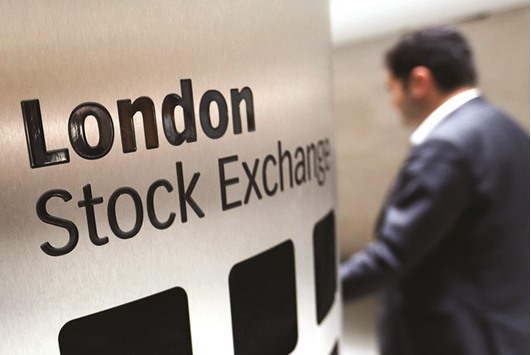European stocks shot higher and the pound plunged after the Bank of England cut interest rates and announced an additional £170bn of stimulus to counter Brexit fallout.
The BoE slashed interest rates to a record low 0.25%, cutting borrowing costs for the first time in more than seven years, and hinted at more easing to come.
London’s FTSE 100 index, which had been wobbling beforehand, stormed higher and closed 1.6% higher at 6,740.16 points.
In the eurozone, the Frankfurt and Paris markets also rose, but their closing gains were well behind London’s.
Frankfurt’s DAX 30 was up 0.6% at 10,227.86 points, Paris’ CAC 40 was up 0.6% at 4,345.63 points and the
EURO STOXX 50 was up 0.6% at 2,929.40 points.
The pound fell against both the dollar and the euro while rates of return on British government bonds sagged.
Britain’s central bank aims combat what it described as a weaker economic outlook after British voters chose to leave the European Union in a June referendum.
The rate move had been expected, but there was surprise when BoE policymakers also voted unanimously for an emergency package worth up to £170bn, including £60bn for more quantitative easing (QE).
“The Monetary Policy Committee decided to implement more policy action than we expected,” Ken Odeluga, market analyst at CityIndex, said.
Simon Wells at HSBC said the package may “support confidence” although he wondered “whether all this QE will have a significant impact on the real economy”.
Michael Hewson at CMC Markets said the Bank may have overreacted to the Brexit shock, possibly without making much difference to the economic outlook.
Wall Street was mostly unchanged, shrugging off the British rate move.
The US market’s muted reaction reflects misgivings that excessive central bank policy is “driving investors into riskier assets,” said Briefing.com analyst Patrick O’Hare.
The rate cut was the first since March 2009, when the bank slashed rates to the current historic low of 0.50% at the height of the financial crisis — and launched its QE policy of buying government bonds to push investors to re-invest funds in the economy.
A better-than-expected reading on US private jobs supported a Wall Street rally, with payroll firm ADP reporting that private US companies added 179,000 jobs in July, slightly better than expected.
The US is due to announce official job creation data for July on Friday, with markets looking for signs that could increase the likelihood of a hike in US interest rates.

A visitor passes a sign inside the London Stock Exchange Group’s headquarters. London’s FTSE 100 index, which had been wobbling beforehand, stormed up and closed 1.6% higher at 6,740.16 points.
